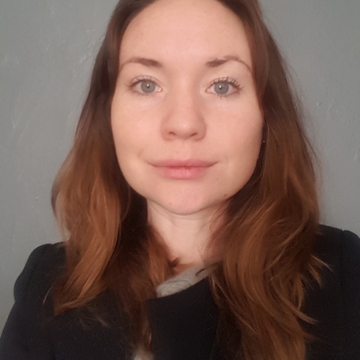Program Provides Research Opportunities for Undergraduate Students

Volunteers in a Crisis
UNM Health Sciences Learners Step Forward to Help With COVID-19 Response
University of New Mexico Health Sciences learners eager to make a difference in the face of the COVID-19 public health emergency have found creative ways to volunteer their time and expertise, even as they have continued their studies in a virtual setting.
Melissa Judson, a first-year student in the College of Population Health master of public health program, has a longstanding interest in epidemiology. She was working as a student intern at the New Mexico Department of Health when confirmed cases of the viral infection started appearing in the state.
She immediately shifted from tracking down suspected cases of food-borne illness to contact tracing for individuals who tested positive for the novel coronavirus.
"I'm calling positive coronavirus cases," Judson explains. "We ask them their symptoms, if they've had a known exposure to a COVID case, or if they're a health care worker who was exposed in the field."
The goal is to identify anyone the person might have come in contact with, then to talk each person on that list to see whether they have symptoms of the infection. "Most people are very generous and understand what we're doing and why we're doing it," she says. "There's a few here and there who are like, 'Who are you and why are you calling me?'"
She is working from home about 25 hours a week on the 4 p.m. to midnight shift, making calls on a DOH-issued cell phone. Judson, who earned an undergraduate degree in public health from the University of Arizona, says her parents never really understood what an epidemiologist does.
"Now my dad calls up and says, "There's an epidemiologist on the news, and that's what you're doing!'"
Like many of her classmates, third-year medical student Frances Chaves was frustrated when clerkships ended in early March. It hit third-year students especially had because they spend their rotations learning what it's like to operate in a medical team environment.
"It's like you're in the middle of a race and somebody pulls you out and tells you to stop running," she says. "A lot of us just found projects without anyone's urging or asking because we would go crazy if we didn't have something to do."
One friend commenced 3-D printing masks and respirators. Chaves started organizing her fellow students to take shifts at the COVID-19 Hotline operated out of the New Mexico Poison & Drug Information Center.
She spends about 20 hours a week taking calls from worried members of the public and another 20 on organizational tasks. She is also recruiting from the class coming up behind the third-years to continue the staffing.
The work can be emotionally taxing, Chaves says. On a recent shift she found herself reassuring a new mother who was afraid of transmitting the virus to her infant through breast milk. But she also had the unpleasant duty of recommending that the woman remain apart from her baby until testing could assure that she isn't infected.
"It's been really rewarding for many of us," Chaves says. "Medical students, myself included, got into medicine to help people. That's why we do what we do. That's why we train the way we train."
Damon Alvarez, a first-year PharmD student in the College of Pharmacy, has also worked shifts at the COVID-19 Hotline since it launched. The most frequent calls come from people who are worried because a coworker or acquaintance tested positive for COVID-19 and they're worried about passing it on to loved ones, he says.
"The second most common is testing center information," Alvarez says. "Especially for people in rural areas of the state we try to figure out which place is the closest."
Sometimes the calls are of a more sensitive nature. "They were mostly people from out of state who were calling about what they should do procedurally to retrieve the body of a family member," he says.
"Calls like that are pretty tough, because on the other end they're frustrated and sad. It's tough to remain emotionally neutral when you're the one person they're look towards for help and guidance on how to get everything handled."
Robin Carillo Ortiz, a student in the UNM-Santa Fe Community College dual bachelor of science in nursing program, turned a lifelong love of sewing and turned it into a network of volunteers sewing cloth masks for distribution to hospitals, first responders and other organizations.
"We're making about 8,500 masks across the street a week, she says. "It blows my mind."
The inspiration came when saw a CNN story about hospital in Indiana that was asking members of the general public to create cloth masks for them because they lacked sufficient personal protective equipment. "I thought, 'I could do that,'" Ortiz says.
Ortiz set up three sewing machines in her living room and enlisted her two daughters to help her. Meanwhile, she and fellow nursing student Erin Price set about creating Operation BandanaNM, building a website and enlisting volunteers willing to sew, collect and cut cloth, or make deliveries around the state.
"There's two patterns that I have up on the website," Ortiz says. "One is standard two pieces of cotton with elastic, the kind of things people will hand out at testing centers." A second pattern has ties and a pocket where a filter can be inserted.
"I will take every single mask that somebody gives me and I'll find a home for it," Ortiz says.